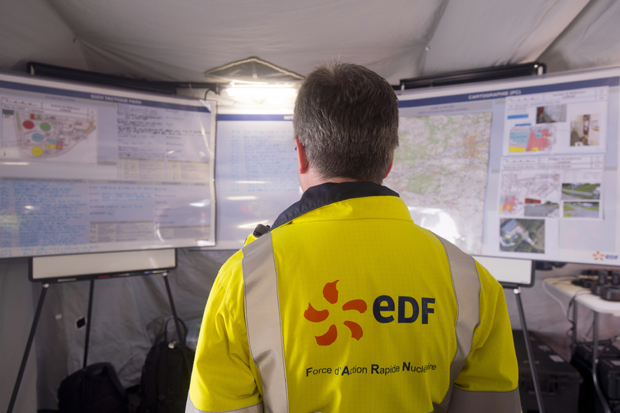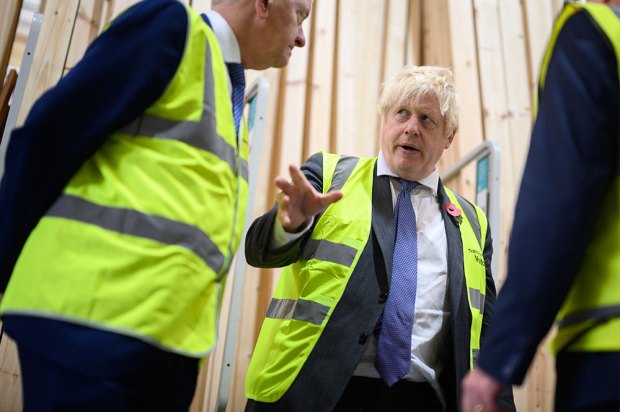Amid all the turmoil in global energy markets, we should not lose sight of the UK power programme that we’re praying will keep our lights on a decade hence: it is, as you know, a hobbyhorse of mine. So how’s it going down at Hinkley Point in Somerset? My man with big binoculars in the Bridgwater Bay nature reserve tells me he’s seeing plenty of lorry movements on the nuclear site, but signals from EDF of France — which has a two-thirds interest in this £18 billion project, alongside Chinese investors — are very worrying.
Having already spent £2 billion, the French state utility has deferred until at least the middle of this month a final commitment that was expected last week. Under pressure from unions and minority shareholders, and battered by falling wholesale electricity prices as well as endless delays and problems on its own nuclear new-build at Flamanville near Cherbourg, EDF is evidently begging for more support from its own government before committing such massive resources to solve a problem for ours.
EDF boss Vincent de Rivaz once promised we would be cooking our Christmas turkeys on new nuclear power by 2017; that was before he realised the utter spinelessness of UK energy policy under all recent governments. Analysts still expect EDF to go ahead, but the plant that should provide up to 7 per cent of future UK electricity needs can’t possibly come on stream before 2025. And the travails of Hinkley are reported to have ‘spooked’ Hitachi of Japan, which is in negotiations for another nuclear station at Wylfa Newydd in Anglesey.
Meanwhile, the Institute of Mechanical Engineers has issued a report that reads like an expanded version of my previous column items on this topic. Given decommissioning of all coal-fired stations and most existing nuclear reactors, it argues, the UK does not have the time or resources to build sufficient new capacity to plug what could be ‘a 40–55 per cent electricity supply gap’ by 2025. Gas offers the easiest solution, but we’d need to build ‘about 30 new combined cycle gas turbine plants in less than ten years’ having built ‘just four in the last ten years’. This failure of planning will leave us reliant on imported electricity from Europe and Scandinavia — meaning higher costs and weaker energy security, while demand rises with a growing population and greater use of electricity for transport and heating.
I don’t like to say it, but I told you so.
Not all bad
Staring out at another damp, dark-grey Yorkshire day, I’m struggling to recall a gloomier start to a new year. But how’s the UK economy really doing, beyond the distractions of falling shares and Brexit doubts? It isn’t all bad, that’s for sure. Growth slowed to 0.5 per cent in the final quarter of 2015, making 2.2 per cent for the full year according to the ONS; but the CBI says ‘the overall domestic outlook still looks fairly secure…Low inflation, strong employment growth and rises in real pay also put households in a good position.’ And a key manufacturing indicator, the Markit/CIPS purchasing managers’ index, rose against expectations from 52.1 in December to 52.9 in January — reflecting strong domestic orders offsetting wobbly exports, and looking healthier than the US, where the equivalent index fell.
Meanwhile, new UK mortgage lending was significantly higher than a year ago, indicating more people finding the confidence and the deposit to climb on to the housing ladder; but total mortgage debt fell slightly, indicating a healthy rate of repayments and no crazy boom. I’m not ignoring the negatives; I’m just pointing out that, for now at least, we’re stronger than the news and the weather may make us feel.
Femme fatale
I’m fascinated to see that Amanda Staveley — deal-broking femme fatale, ‘former girlfriend of Prince Andrew’ and granddaughter of a Doncaster bookie — is suing Barclays for £700 million (some sources say £1 billion) in connection with the bank’s £5 billion capital-raising from the Gulf in 2008, in which her firm PCP Capital acted for an Abu Dhabi sheikh. The tranche of the deal that involved Qatari investors is still subject to an SFO investigation, but when it’s no longer sub judice, this whole saga will make an even better movie than The Big Short.
I’d cast Nicole Kidman as Amanda and Kevin Spacey as Bob Diamond.
Opening doors
Connections are a currency to be spent wisely — but spent in good time. If you think you’re in the last decade of your working life, I believe the best thing to be done with accumulated connections, before they wither away, is to use them to help young people you know launch their own careers. So I’m sorry to read in the Sunday Telegraph that name-dropping, family ties and ‘taking the managing partner out to lunch’ are all now strictly out of bounds as methods of getting unjobbed graduates through the plate-glass doors of top City firms; indeed, any attempt to activate such connections is now ‘a very big black mark against the candidate’.
Of course we’re all for social mobility and level playing fields, and the circle of youngsters for whom we deploy our networks should be drawn wide. This isn’t about ‘perpetuating privilege’ but about the delicate mesh of personal obligations, of favours owed and favours called, that make the world go round. My generation are burdened with moral debt towards the generation before. How each of our lives actually turned out is a function of our own ability and luck, or lack of them — but almost all of us had a helpful kick-start from family or friends. I know I did, both in banking and in journalism. The only way we can ever repay that is by doing likewise for the next lot, which means occasionally fixing an introduction or an internship. We’re only trying to open those plate-glass doors, after all. Modern mores say that’s a sin, but I’d feel far more guilty if I didn’t keep doing it.
Got something to add? Join the discussion and comment below.
Get 10 issues for just $10
Subscribe to The Spectator Australia today for the next 10 magazine issues, plus full online access, for just $10.
You might disagree with half of it, but you’ll enjoy reading all of it. Try your first month for free, then just $2 a week for the remainder of your first year.















Comments
Don't miss out
Join the conversation with other Spectator Australia readers. Subscribe to leave a comment.
SUBSCRIBEAlready a subscriber? Log in